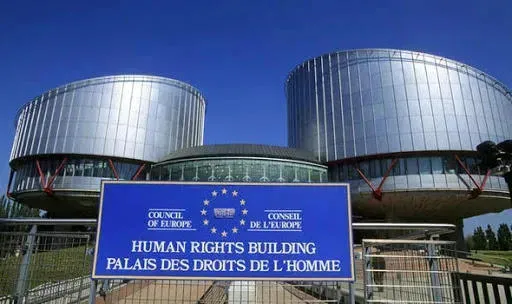POLITICS
09.04.24 14:30

The European Court of Human Rights published the decision on the case "Georgia v. Russia", which started after the 2008 conflict. It refers to violations of human rights as a result of "borderization", - it was mentioned in the press release of the court.
"The European Court of Human Rights unanimously determined that there was a violation of Article 2 of the Convention (right to life), Article 3 (prohibition of inhuman or degrading treatment), Article 5, paragraph 1 (right to liberty and security) and Violation of Article 8 (right to protection of private and family life), Article 1 (right to property) and Article 2 (right to education), Article 2 (freedom of movement) of Protocol 4 of the Convention," the press release of the court stated.
According to the court's explanation, the armed conflict between Georgia and Russia in August 2008 triggered a process that began in 2009 and is known as "borderization".
"It prohibits people from freely crossing the administrative border between the territory controlled by Georgia and the separatist Georgian regions supported by Russia - Abkhazia and South Ossetia. The situation is referred to as "one of the most painful legacies of the August 2008 Georgia-Russia conflict," the press release said.
According to the court, the Georgian government claimed that people were killed while trying to enter or leave Abkhazia or Tskhinvali, while others were arrested, detained and/or ill-treated for "illegal crossing" of the administrative border. In addition, according to the Georgian government, people were robbed of the land they used to farm, families were separated, and children were forced to choose between learning Russian or long and dangerous journeys to attend school in Georgian-controlled territory.
"The court found that it had sufficient evidence, namely victim lists, testimonies, media reports and international materials, to conclude beyond a reasonable doubt that the alleged incidents were not isolated and were sufficiently numerous and interconnected to constitute a pattern or system of violations." Moreover, the apparent absence of an effective investigation into the incidents and the general application of the measures to all individuals proved that the Russian authorities were officially tolerant of such practices," the press release of the Strasbourg court noted.
ipn.ge
Read: 280
Write comment
(In their comments, readers should avoid expressing religious, racial and national discrimination, not use offensive and derogatory expressions, as well as appeals that are contrary to the law)
News feed
-
Speaker meets French Senate delegation
18:0029.04.24
-
17:3129.04.24
-
Ruling party official rejects claims on transparency of NGO funding
16:3829.04.24
-
15:5229.04.24
-
Citizens of Georgia will be able to travel to China without a visa from May 28
15:0029.04.24
-
Georgia in IMF top 10 with highest unemployment decrease over 12 years
14:1829.04.24
-
13:3729.04.24
-
Shalva Papuashvili: It's time to stand together
12:5929.04.24
-
12:3729.04.24
-
Police arrest six, seize illegal firearms, ammunition in capital, western regions of Georgia
11:0529.04.24
-
Georgia’s Public Safety Command Centre hosts UN permanent representatives
10:3029.04.24
-
The struggle for the North-South corridors and for access to the Indian Ocean
9:5529.04.24
-
Irakli Kobakhidze: These resolutions were worthless then and they have no value now
18:0326.04.24
-
Special Investigation Service exposes employee of Ministry of Internal Affairs to coercion
17:1126.04.24
-
16:3026.04.24
-
Irakli Kobakhidze: Non-transparent NGOs have tried to organize a revolution twice in this country
15:4526.04.24
-
15:0026.04.24
-
GeoStat: The number of emigrants increased by 95.6% in 2023
14:0726.04.24
-
Shalva Papuashvili: Visa liberalization will not be canceled
13:3626.04.24
-
Turkey is extending a hand of reconciliation to Armenia. Yerevan must seize opportunities
12:4326.04.24
-
11:5226.04.24
-
10:0026.04.24
-
From 'alliance' to open hostility: Armenia and Russia
19:0325.04.24
-
17:5425.04.24
-
17:0025.04.24
-
Lithuanian Ambassador: Foreign influence bill contradicts EU recommendations
16:1025.04.24
-
Shalva Papuashvili: We hear statements and concerns from the US State Department, Brussels
15:3025.04.24
-
14:5725.04.24
-
14:0625.04.24
-
13:1425.04.24
-
Defense Committee Chair hosts Head of NATO Liaison Office in Georgia
12:3025.04.24
-
11:5725.04.24
-
11:1125.04.24
-
Rally against draft law "On Transparency of Foreign Influence" underway near Parliament
10:0025.04.24
-
MIA to identify individuals calling for blocking roads artificially during Rustaveli Avenue rallies
18:0024.04.24
-
Lazare Grigoriadis leaves prison
17:3024.04.24


